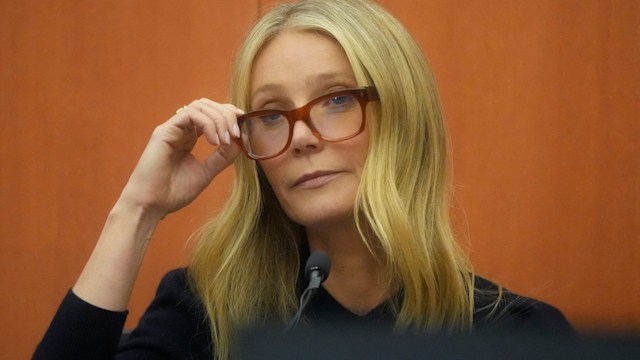Gwyneth Paltrow is loving her life of semi-retirement from Hollywood to not only focus on building Goop but also caring for her daughter Apple, 18, and son Moses, 16.
However, the road to her settled lifestyle with her kids and husband Brad Falchuk was difficult, especially following the birth of her son.
Back in 2018, Gwyneth got candid in her "The goop Podcast" about her bout of postpartum depression after Moses' birth in April of 2006.
She'd said: "I had postnatal depression, as you know, after my son. A doctor tried to put me on antidepressants and I thought, if I need them, then yes, I'll come back to it."
MORE: All we know about Gwyneth Paltrow's lawsuit over ski accident as kids prepare to testify
MORE: Gwyneth Paltrow surprises with photo of rarely seen stepson for sweet reason
However, while acknowledging that they could be useful for several, she chose a different method of healing.
"I thought, well, what if I went to therapy and I started exercising again, and I stopped drinking alcohol and I just gave myself a period of regeneration and I slept more? I really broke out of it," she explained.
This wasn't the first time that Gwyneth opened up about the condition, telling Good Housekeeping in 2011 that it was the exact opposite of how she'd felt after Apple was born.
"With her, I was on cloud nine. I couldn't believe it wasn't the same [after Moses was born]. I just thought it meant I was a terrible mother and a terrible person."
MORE: Gwyneth Paltrow details shocked reaction to mother Blythe Danner having same cancer as her father
MORE: Inside Gwyneth Paltrow's stunning $17.5m childhood home – complete with spa, cinema & car showroom
However, it was her ex-husband and the father of her children, musician Chris Martin, who supported the 50-year-old through it and recognized it in the first place.
"About four months into it, Chris came to me and said, 'Something's wrong. Something's wrong. I kept saying, 'No, no, I'm fine.' But Chris identified it, and that sort of burst the bubble."
That was the key factor that helped her heal, as she realized that it was acknowledging the existence of it that aided in her recovery.
"I thought postpartum depression meant you were sobbing every single day and incapable of looking after a child. But there are different shades of it and depths of it, which is why I think it's so important for women to talk about. It was a trying time. I felt like a failure."
Read more HELLO! US stories here!
Sign up to our newsletter to get other stories like this delivered straight to your inbox.
